Is an MBA really required in today’s world to learn about business? Josh Kaufman skipped Business school but not business education hit the books and created his own Personal MBA through a lot of research, time, and self-education.
Should you go to Business School is a hot topic, you’ve probably asked this question at some point in your life.
The Author gives a very straightforward answer:
Skip business school. Educate yourself.
Business schools don’t create wealthy and well-connected people. They accept them, then take credit for their success.
MBAs are extremely expensive, outdated, and won’t guarantee you a high-paying job or make you a skilled manager or leader. An MBA right now sounds like a bad financial decision.
The Personal MBA explains how businesses and systems work. The 5 key parts of every business include Value Creation, Marketing, Sales, Value Delivery, and Finance.
Value Creation
Without value creation, a business cannot exist. For transactions to take place, we must create value.
The best form of value creation is meeting the unmet needs of people. Discovering what people want or need then creating it.
Business is identifying a problem and finding a way to solve it that benefits both parties involved.
Marketing
Offering value is not enough. If no knows what you have to offer, then no one’s going to buy from you. Marketing is getting people’s attention to who you are and what you do.
Marketing is all about getting noticed, and sales is about closing the deal. Attention is today’s most expensive currency. If you can get a hold of people’s attention, you can then get their money.
It’s hard to get people’s attention as everyone has too many things to do and too little time to do them all. High-quality targeted attention must be earned.
Earn the attention of people who are likely to buy from you and you can build your business. The best way to get people’s attention is by being remarkable.
Sell to people who actually want to hear from you. Telling them a story of your customers in the past and how they benefitted is a powerful way to make them interested in proceeding.
Sales
Having the prospects is well and good, but if no one pulls out their wallet and says take my money then there’s no point. No sale, no business.
A Transaction is an exchange of value between two or more parties. Having something valuable in exchange for money is business.
It’s important to first test out what you have before starting a new business. Here’s where a Minimum Viable Offer is so important.
The best way to see if something works or not is by testing. If it works, proceed if it doesn’t stop and re-evaluate. The Market is and will always be the judge.
Remember The Segway? It was marketed as the future of walking, but incurred a huge loss financially. All the marketing went down the drain as people just didn’t care.
Trust was not created and there was no common ground there was not a strong enough reason for people to buy.
Value Delivery
If you as a business deliver to the customer what you promise, there’s a high chance that the customer would want to do business with you again because of your reputation.
The Lifetime Value of the customer increases and so does your brand or more rightfully reputation.
A satisfied customer is the best business strategy of all.
Michael LeBoeuf
Unsuccessful businesses fail to make their customers happy, lose them, and eventually close shop.
Over-promising and under-delivering or not delivering at all is a scam. Surpassing customer’s expectations is value delivery.
Zappos has perfected the art of selling shoes online. When you order from Zappos, it’s likely your shoes will arrive a few days ahead of schedule. The surprise effect is value delivery. They could advertise for this, but they don’t.
Finance

Finance helps you watch your money in a way that makes sense. Accounting is the process of ensuring the data you use to make financial decisions is as complete and accurate as possible.
In order for a business to exist, the revenue generated should be sufficient to justify the time and effort that goes into running the operation.
Business is not about what you make, it’s about what you keep. Higher the profit margin, stronger the business. ((Revenue – Cost)/ Revenue)*100=% Profit Margin.
Profits are important, but they are not everything. Reaching a point of sufficiency is a good sign for starters where the revenue brought in by the business is sustainable.
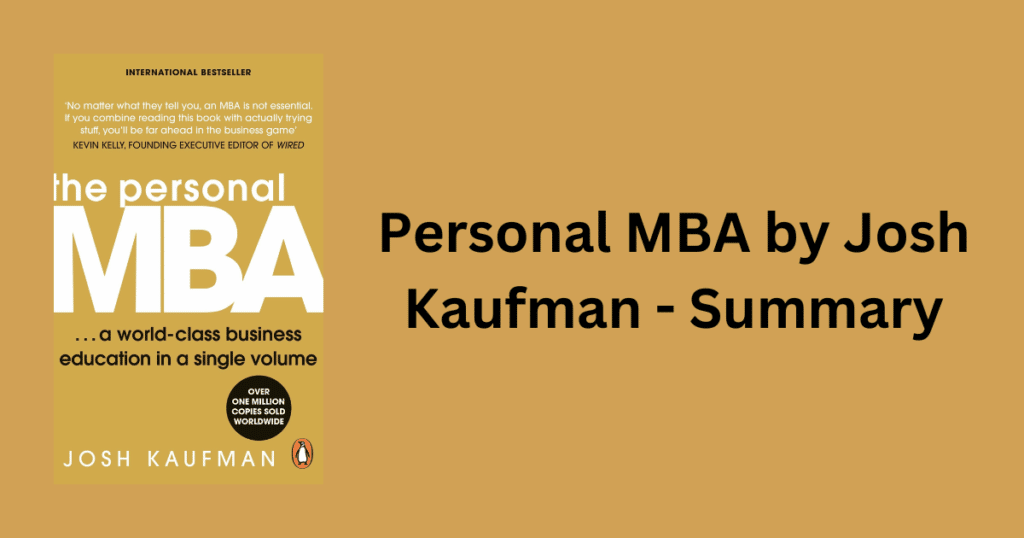

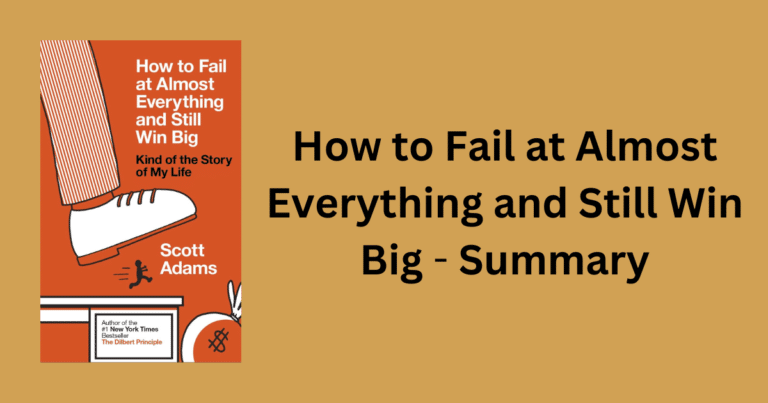
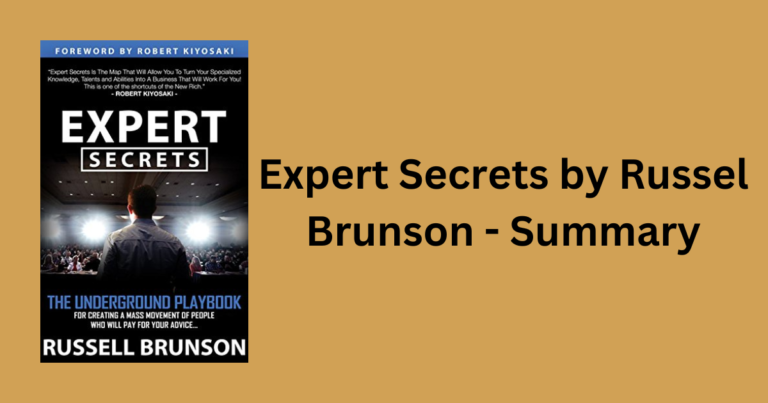
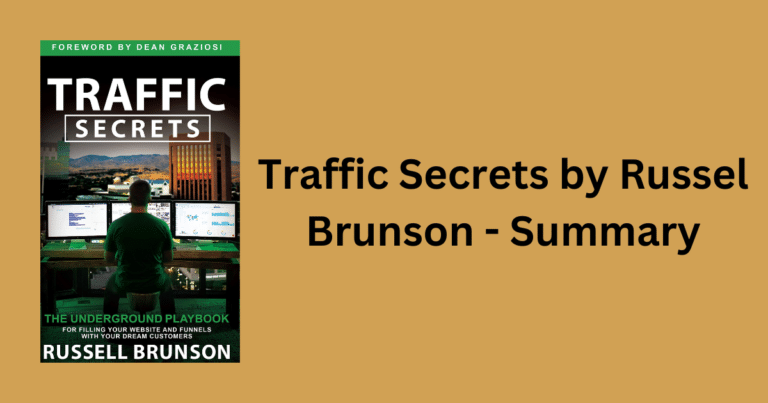
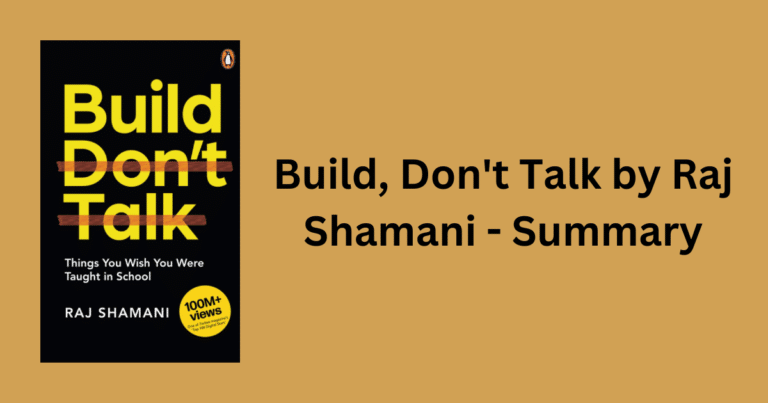
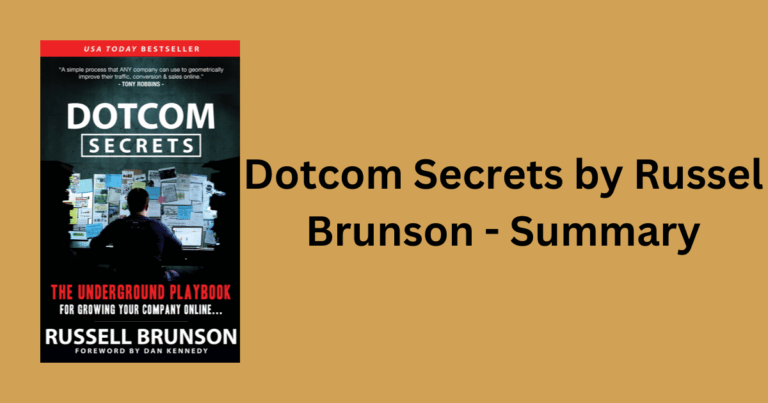

3 thoughts on “The Personal MBA: Master the Art of Business – Summary”
Amazing review of the book.
By reading this summary….
I have added this book to my wishlist and I will definitely read it 👍🏻
I’m glad you liked it.
Simple and nicely summed up. I think I’ll read this book!